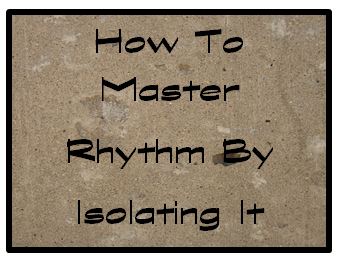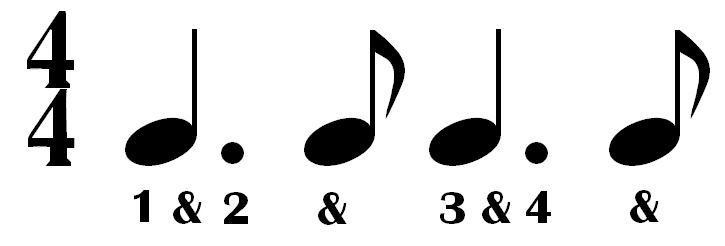 Are you having trouble reading and understanding certain rhythms in your music?
Are you having trouble reading and understanding certain rhythms in your music?
The most effective way for you to truly master rhythm is by isolating it.
Here’s how you do it:
1) Find a measure in your music with a rhythm you are having trouble with.
2) Isolate it by ignoring the actual notes on the staff. Only pay attention to the rhythm itself. If you can’t do this, then get a sheet a paper out and re-write the rhythm.
Now it’s time to problem solve!
3) Break the rhythm down into it’s smallest components. In other words, find the smallest note value and divide all other notes down to equal this value.
5) Count the rhythm out loud several times while tapping your foot to a steady beat. Try clapping it too.
6) Now, go back to your original music and sing or play that measure on your instrument using only 1 note.
If you have trouble, go back to chanting or clapping it in an isolated state.
7) When you feel this rhythm is mastered, go ahead and play it on your instrument or sing it using the music notes given in your music.
By isolating rhythms and using a little math to think through how to count them, you will be able to conquer them all in no time!





Hi, I always had trouble reading music – I can do it with easy stuff but anything else is a struggle, but your explanation and advice is very good and it has helped me understand more. I learnt to guitar by ear many many years ago and it is so much easier than ploughing through sheet music so I gave up as I just want to play for fun, mostly what I hear and I do fairly well with that.
My son learnt piano at school through the grades (for about 8 years) and played Moonlight Sonata beautifully but he can’t even play Jingle Bells without the music. I think learning to read sheet music puts so many children off. It’s so much easier to hear and play a tune and then learn chord structure, progressions, etc.
I would be interested in your comments.
Rona
Hi Rona, I appreciate your comments. Ideally, you want to be able to read music AND develop a good ear. They go hand-in-hand. Both skills will open you up to many possibilities and full enjoyment of playing music. If your son gives you music to read, are you able to play it according to what is written on the page?
I have the same problem. I don’t know the notes unless they are written down somewhere. I cant play mary had a little lamb with out the music in front of me. I’ve been attempting to play music for a year now. my wife says I’m good, but she also loves me. 🙂
Thank you so much, Teresa! I have gone through your lessons and review them from time to time, and they have helped me immensely! Your explanations are very clear and your calmness and patience are felt through your writing. I won’t be able to be back with my teacher for a few more months but your lessons are keeping me going and progressing. Thank you again for being so kind to make them available. You have been a blessing!